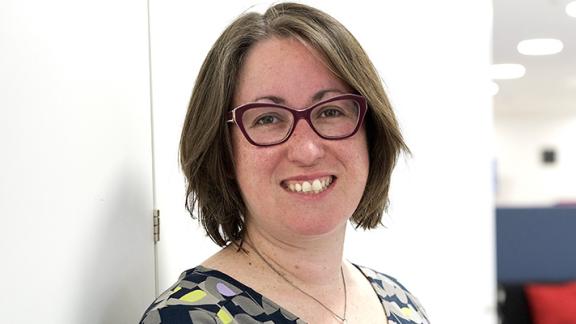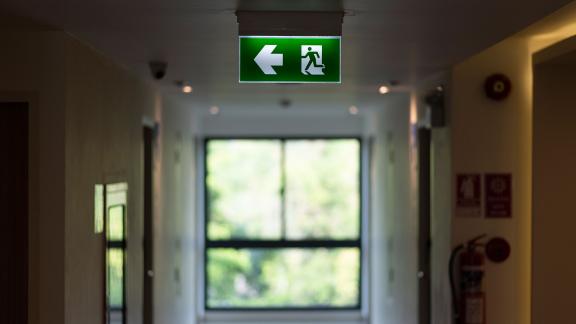Being realistic, the NHS recovery will not be perfect

Although politicians are now talking publicly about the scale of the NHS recovery challenge and the public is listening, what people can expect from the service needs that same honesty to help relieve the sense of despair.
Health policy makers are finding themselves in a double bind right now. On the one hand, the NHS elective backlog is huge, it is practically and morally unacceptable, and it puts patients at risk. It absolutely must be reduced so people can get the care they need and in some cases have long been waiting for. Nobody argues with that.
On the other hand, any proposed solutions short of magical unicorns flying in to do hip replacements are met with an almost-automatic rejection when it comes to public messaging. The flaws to any plan are magnified and condemned. And policymakers find themselves in the situation that they are damned if they do and damned if they don’t.
Honesty is the best policy
The problem comes down to honesty. The NHS Confederation has been calling for honesty from politicians about the scale of the challenge, and what the public can expect. The reason we have called for this type of honesty is because our members, the leaders of hospitals, clinics, ambulance services and primary care across the whole NHS, tell us that it is essential.
The second part of that honesty request is less visible: what the public can expect
Without honesty about this at the national level, people waiting for care don’t understand why they’re still waiting, and they’re quite reasonably getting frustrated and distressed when the national message doesn’t seem to match with their local experience. Some are getting irate or even violent towards the same NHS staff working so hard, above the call of duty, within the current constraints, to help them.
We are starting to see that honesty from politicians. The scale of the challenge is being laid bare in political speeches and media interviews. It’s in newspapers, on TV and radio. The public are hearing these messages. This is sad and it is important.
But the second part of that honesty request is less visible: what the public can expect, especially when it comes to being clear that the new money being invested in the NHS will take time to translate into extra staff and capacity.
Mitigating risk
And its absence is risky. It means that the public are being left knowing that there’s a big problem, but a nebulous assurance that at this stage of the pandemic, it’s being sorted out. Or maybe they’re just doomed. Who knows? That’s a reason why many feel so distressed when they’re still not called in for that long-awaited procedure.
The honesty that we are calling for says yes, we are ‘sorting it out’. But it will take time, it will be hard, and compromises might be needed. We want to treat you safely and effectively as quickly as possible.
Our world
In an ideal world we’d have extra staff, beds, scanners, operating theatres and the rest on standby, always ready to do lots of additional work without changing anything else. But we don’t. We made financial decisions over the last decade to operate the NHS so efficiently that we don’t keep that sort of expensive spare capacity and everyone’s working flat out. We have one of the lowest numbers of beds per head of population, and fewer doctors and nurses per head, than most other western European countries.
What’s more, as part of the pandemic’s effects, lots of the capacity we do have, designed for ‘normal’ times, is being taken up right now by abnormally high urgent and emergency needs, and extra infection control measures, and staff sickness and vacancies.
So here we are, with less capacity to do even ‘normal’ amounts of work, but the need to somehow do much more. The public wants a solution and that is right. They deserve one.
Any perfect solutions?
The fact is, compromise is inevitable. It’s that fact that is missing from the political honesty we are calling for
That’s where health policy comes in, to analyse the situation, come up with solutions, identify the pros and cons, and propose the best option. Given the absence of hip-replacing magical unicorns (or a sudden appearance of the fully-trained 90,000+ staff just to fill the current vacancies), they have to work with what they’ve got.
Which means that there is no such thing as a perfect solution. Sometimes there is only the least-bad solution. Sometimes it’s a good solution with a lot of caveats. The fact is, compromise is inevitable. It’s that fact that is missing from the political honesty we are calling for.
Bold plans needed
As we anticipate the publication of the NHS Elective Recovery Plan, we are already seeing media stories pointing out all the potential flaws in the approaches that are likely to be taken. This is right, of course. Scrutiny is always good. I worry about these things too: potential impacts on inequalities, or on primary care. These are clearly very important. Understanding and mitigating those impacts is essential.
But so is reducing that elective backlog. To do more, within the constraints that exist and cannot, at least in the short term, be magicked away, bold plans are needed, and let’s face it: while some bits will be innovative and exciting, changes and compromises will need to be part of that.
Jim Mackey is an experienced, practical well-respected leader doing the best he can with the resources he has at his disposal. That the plan will be imperfect, and not without risk, but it’s almost certainly the right way forward. From what we hear so far, proposed changes like scheduling some outpatient appointments for when people need them (rather than bringing everyone for extra appointments at arbitrary time points) are innovations that could genuinely create extra capacity for health professionals to work on reducing waiting lists.
Without honesty from politicians and the media about what to expect, people are going to be so busy picking holes in ideas and scanning the skies for unicorns that they might not notice that despite the fact that no plan is perfect, they’ve finally been called in for the surgical procedure for which they’ve been waiting.
Dr Layla McCay is director of policy at the NHS Confederation. You can follow her on Twitter @LaylaMcCay
This blog was first published in the Times Red Box



